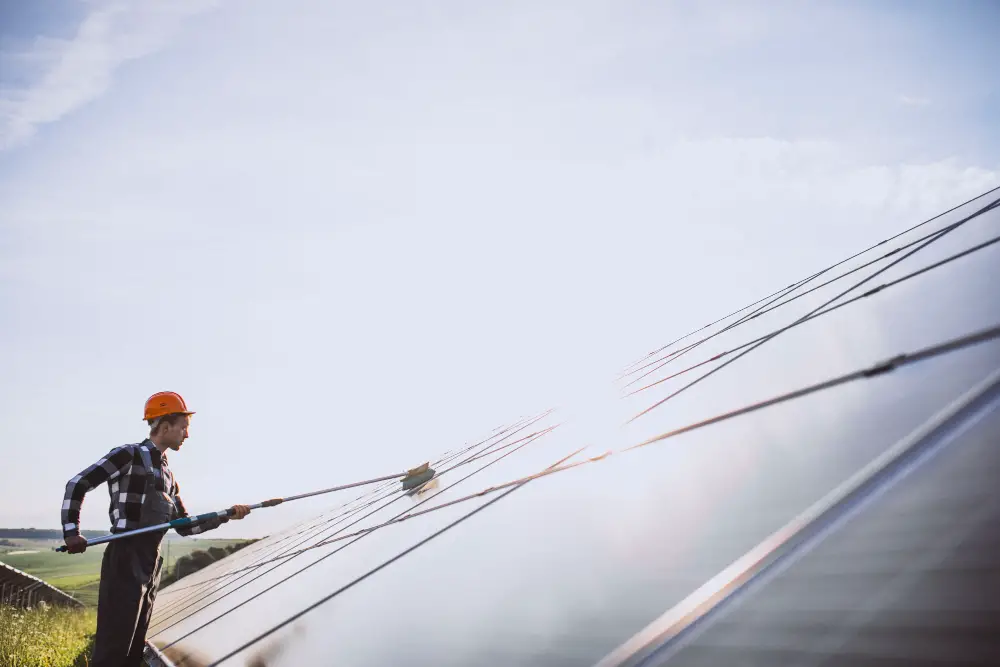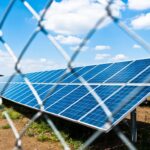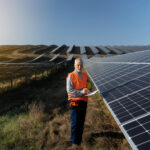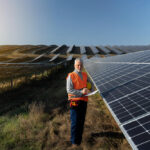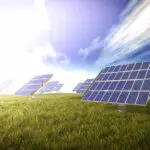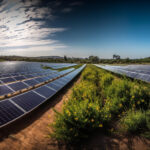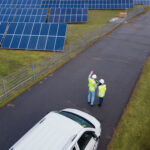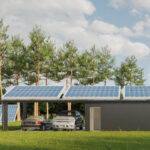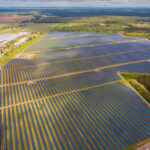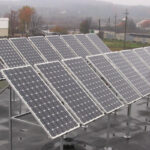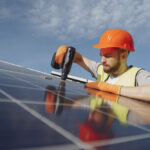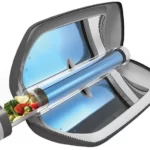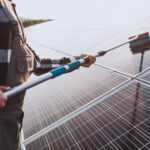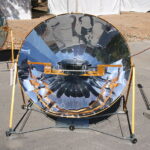Solar panel systems have gained significant popularity as a sustainable and renewable energy source. To ensure optimal performance and longevity, regular maintenance, including cleaning, is crucial. Solar panel cleaning equipment plays a vital role in maintaining the efficiency of solar panels. In this blog post, we will explore different types of solar panel cleaning tools/equipment, how to choose the right equipment, and provide a detailed description of each type.
Types of Solar Panel Cleaning Tools/Equipment
Soft Bristle Brushes
Soft bristle brushes are commonly used for cleaning solar panels. These brushes are designed to remove dirt, dust, and debris without damaging the panels’ delicate surface. The bristles are usually made of nylon or polyester, which are gentle yet effective at cleaning. Soft bristle brushes are often attached to telescopic poles, allowing operators to reach panels at various heights.
Water-fed Poles
Water-fed poles are versatile tools that combine a brush head with an extendable pole and water supply system. They are particularly useful for cleaning large-scale solar panel installations. The brush head at the end of the pole is equipped with soft bristles, and water is fed through the pole to wet and rinse the panels. Water-fed poles are an efficient option for solar panel cleaning without the need for ladders or scaffolding.
Automated Robotic Cleaners
Automated robotic cleaners are advanced devices designed to autonomously clean solar panels. These devices typically consist of a wheeled or tracked unit with brushes or cleaning mechanisms attached. They are programmed to move systematically across the surface of the panels, removing dirt and grime. Robotic cleaners are ideal for large solar farms or installations where manual cleaning would be time-consuming and labor-intensive.
Pressure Washers
Pressure washers use a high-pressure stream of water to clean solar panels. They are effective at removing stubborn dirt and debris. However, caution must be exercised while using pressure washers as excessive pressure can potentially damage the delicate surface of the solar panels. When using pressure washers, it is recommended to maintain a safe distance from the panels and adjust the pressure to a suitable level.
Cleaning Solution Applicators
Cleaning solution applicators are handheld devices that allow for the controlled application of cleaning solutions to the surface of solar panels. These devices typically consist of a spray nozzle or brush attached to a reservoir that holds the cleaning solution. Cleaning solution applicators are commonly used in conjunction with soft bristle brushes to enhance the cleaning process.
Accessories/Tools for Enhanced Solar Panel Cleaning
- Extension Poles: Extension poles are valuable accessories that allow operators to reach and clean solar panels that are positioned at a height. They can be attached to soft bristle brushes or water-fed poles, providing additional reach and flexibility during the cleaning process.
- Microfiber Cloths: Microfiber cloths are commonly used for gentle and precise cleaning of solar panels. These cloths have a high absorption capacity and are non-abrasive, making them ideal for removing smudges or streaks without causing scratches on the panel surface.
- Squeegees: Squeegees are effective tools for removing excess water or cleaning solution from solar panels after washing. They help in achieving a streak-free finish and enhancing the overall appearance of the panels.
- Safety Equipment: When working with solar panels, it is essential to prioritize safety. Safety equipment, such as gloves, goggles, and non-slip footwear, should be used to protect against potential hazards during the cleaning process. Additionally, using a safety harness or fall protection equipment is necessary when working at heights.
How to Choose the Right Equipment for Solar Panel Cleaning
Choosing the right cleaning equipment is crucial to minimize the solar panel cleaning cost. Go through the tips below for making a better decision.
- Panel Size and Layout: Consider the size and layout of the solar panels when choosing cleaning equipment. For smaller installations or residential setups, soft bristle brushes or water-fed poles may be sufficient. Larger installations may require automated robotic cleaners or specialized equipment to ensure efficient and thorough cleaning.
- Accessibility: Evaluate the accessibility of the solar panels. If the panels are easily reachable, manual cleaning tools such as brushes or water-fed poles may be suitable. In cases where the panels are installed on elevated structures or rooftops, automated robotic cleaners or telescopic poles can be more effective.
- Budget and Frequency of Cleaning: Consider your budget and the frequency of cleaning when selecting equipment. Automated robotic cleaners are generally more expensive but can be cost-effective for large-scale installations that require regular cleaning. Manual cleaning tools may be more affordable for smaller setups.
- Environmental Factors: Assess the environmental conditions surrounding the solar panels. If the panels are exposed to heavy dust, debris, or bird droppings, equipment with stronger cleaning capabilities, such as pressure washers, may be necessary.
Conclusion:
Proper maintenance and regular cleaning are essential for maximizing the efficiency and lifespan of solar panels. Selecting the right solar panel cleaning tool is crucial for achieving effective and safe cleaning operations. Consider factors such as panel size, accessibility, budget, and environmental conditions when choosing the equipment that best suits your needs. Whether it’s soft bristle brushes, water-fed poles, automated robotic cleaners, pressure washers, or accessories like extension poles, microfiber cloths, and squeegees, each type of equipment offers unique benefits to keep your solar panels clean and performing optimally.

